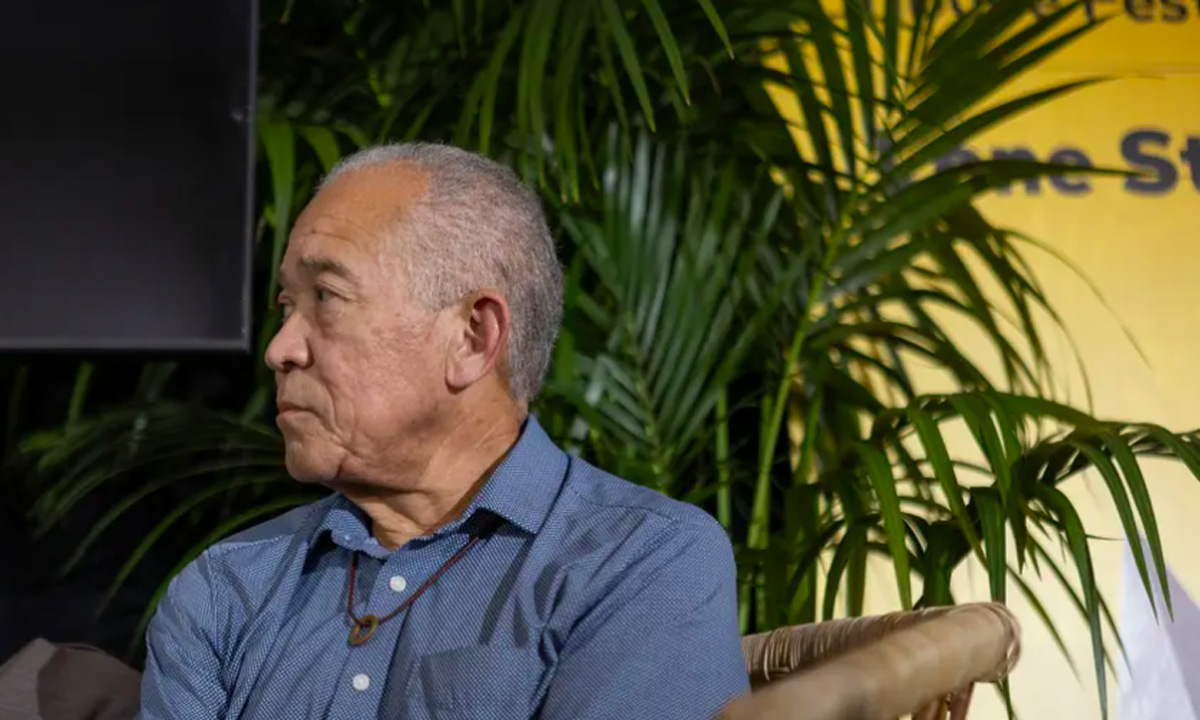Houston ISD Superintendent Says He Needs 4-5 Years to Turn the District Around
Mike Miles said he should be held accountable and be fired if the district doesn’t improve academically in the next two years.

Get stories like this delivered straight to your inbox. Sign up for The 74 Newsletter
Mike Miles, the superintendent appointed by the state in the summer to turn around the Houston Independent School District, said Saturday he would need the next four to five years to put it on the right path.
“We have to build a culture of high performance,” he said during a Texas Tribune Festival panel. “This is a long-term proposition to change culture. Culture is changed over time.”
He presented himself as single-minded in his goal to improve educational outcomes in Houston ISD, saying he’s acting quickly so students don’t lose more time and he can bring back the democratically-elected school board.
“I’m trying to do this as fast as we can, but I’m not sure we can do it overnight,” he said.
During the event, Miles said he expects about 70 schools to receive a D or F in the state’s accountability system from an A-F scale, which takes into account state test scores. One of his main tasks at the district’s helm will be to change that: He’s required to ensure none of the schools receive a failing grade in multiple consecutive years.
He also gave himself a deadline to start producing results.
“If we don’t start to see the needle move in two years, you should fire me,” he said. “That’s accountability.”
Miles said lack of accountability is a problem in the educator profession. One of the ways he wants to hold educators accountable is by tying compensation to classroom outcomes. Teacher unions say that’s an unfair and ineffective way to gauge teacher performance since test scores are just a snapshot of what children learn throughout the year and may not reflect their true academic achievement.
Several Houston ISD teachers and community members have criticized him for his “my way or the highway” approach. He doubled down Saturday, saying those working in the district who don’t like his changes can choose to leave.
“If they don’t want to work in that kind of culture, they need to make the decisions that’s right for them,” he said.
Miles has been at the helm of Houston ISD for four months and has wasted no time implementing his vision, facing criticism for the abruptness and rigidity of his plan. Since taking over in June, more than 80 campuses have been placed under his so-called “New Education System,” which he describes as an “innovative staffing model that puts the focus on classroom instruction and improved student outcomes.”
The state’s takeover of Houston ISD was in response to years of poor academic outcomes at a single campus in the district, Phillis Wheatley High School; allegations of misconduct against school board members; and the ongoing presence of a conservator who’s been overseeing the district for years. Texas Education Agency Commissioner Mike Morath has said state law required his agency to respond by either closing Wheatley or appointing a new board to oversee the district.
Many parents and teachers have criticized the system as a one-size-fits-all approach that doesn’t bode well for students who learn differently. Educators are tasked with following a strict teaching schedule prepared by district leadership in an effort to save them time they usually spend preparing curriculum. Teachers say the district’s plans limit their ability to adapt their lessons and often need to be corrected.
Miles also converted some of Houston ISD’s libraries to discipline areas and reassigned librarians, which drew the ire of several panel attendees who defended libraries as an important part of a child’s development.
But Miles said the bad experiences some attendees described were purely anecdotal and framed them as examples of the “status quo” thinking prevalent in the state’s education system.
“We can’t keep doing the same things,” he said.
This article originally appeared in The Texas Tribune, a member-supported, nonpartisan newsroom informing and engaging Texans on state politics and policy. Learn more at texastribune.org.
Get stories like these delivered straight to your inbox. Sign up for The 74 Newsletter

;)